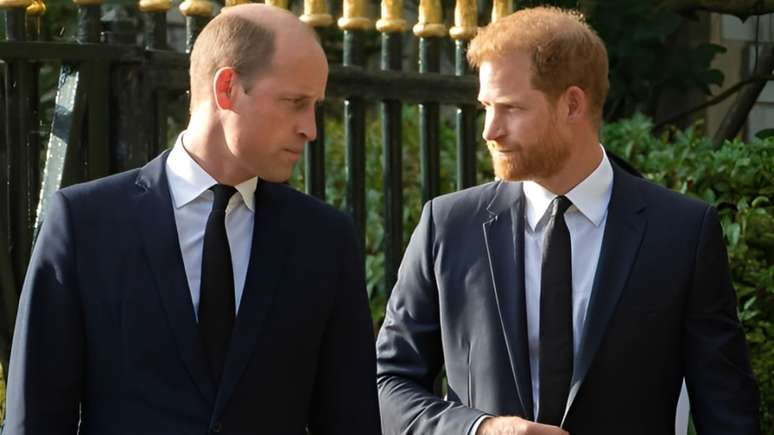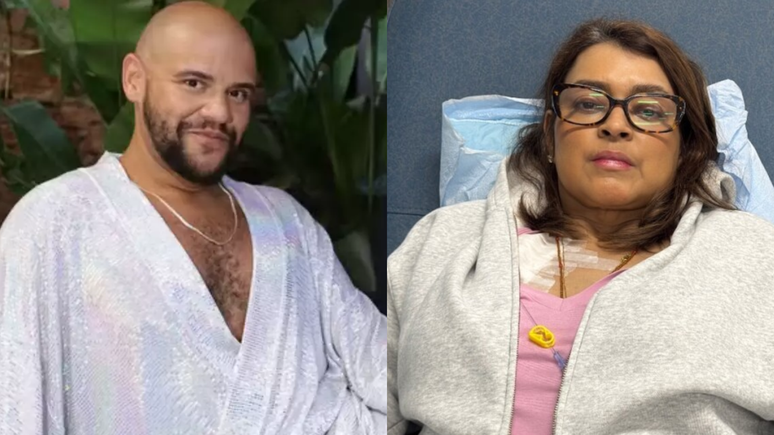The lack of dialogue in love relationships opens up cracks for resentment to enter, but the bond of care is strengthened with good communication
Maria is distressed, she wants to talk about what is bothering her in the relationship. She has already asked João more than once to listen to her, but he doesn’t speak, he avoids the confrontation. Teresa and Laura, on the contrary, open the dialogue casually, but within a few minutes the tone of voice rises and the accusations inflame the room. Already
Carlos is famous for being obsessed with discussing the smallest details of his relationship with Arthur and is tired of carrying that stigma around. Well, if communication is the foundation of a loving partnership, why is it so hard to talk?
html[data-range=”xlarge”] figure image img.img-66942df4df41ac961e5693c2f9c2e7f6lmay7iqg { width: 774px; height: 516px; }HTML[data-range=”large”] figure image img.img-66942df4df41ac961e5693c2f9c2e7f6lmay7iqg { width: 548px; height: 365px; }HTML[data-range=”small”] figure image img.img-66942df4df41ac961e5693c2f9c2e7f6lmay7iqg, html[data-range=”medium”] figure image img.img-66942df4df41ac961e5693c2f9c2e7f6lmay7iqg { width: 564px; height: 376px; }HTML[data-range=”small”] .article__image-embed, html[data-range=”medium”] .article__image-embed {width: 564px; margin: auto 0 30px; }
The above characters are fictional, but the situations are common. Because most couples find it difficult to include topics of greater emotional tension in everyday conversations. However, they are vital to the health of married life. After all, how can the accounts of the relationship be settled and matured if the spouses are not able to dialogue, confront each other, present points of view, having the certainty that they will be listened to and considered?
As it was in the past
In the past, many couples lived together for decades without speaking openly about their relationship truer feelings. It was the empire of the unsaid. Then the comfort of social roles exceeded the human need to deepen the emotional bond. And so life went on without the unresolved issues of the marriage having a chance to be examined and resolved.
“Today, by contrast, dialogue between partners is expected to be permanent and intimate. ‘Discussing the relationship’ is part of the process of maintaining the bond,” writes couples therapist Lidia Rosenberg Aratangy, in the book “The ring you gave me: the couch wedding” (Artemeius).
Arguing is different from arguing
Couple therapist Marina Reis, creator of the Casal Talks channel, clarifies in advance that an argument is different from a quarrel. While in the first the two are focused on resolving the conflict, in the second the dispute prevails to prove who is right and who is wrong.
“Starting from this principle it is important that people understand that every couple fights. If this does not happen it is because someone is keeping quiet, because we will all have moments in which we will be dissatisfied and the relationship must be a safe space to deposit our grievances, weaknesses and frustrations,” he expounds.
Ideally, adults shouldn’t fear the conversation or think it will always end up disagreeing. However, the gesture of opening the conversation to touch the sensitive points of the partnership can be quite destabilizing for some people.
“The real problem may lie in how these conflicts are resolved, because when we start discussions, we try to protect ourselves from emotional pains already known and experienced in childhood,” says the therapist.
where the connection is lost
Whether it’s out of defense or out of immaturity, fleeing the dialogue is like taking on a debt that will later explode in interest. Resentment grows, involving sorrows, exacerbating criticism, cooling gestures of affection and, over time, the emotional distance assumes gigantic proportions. Inevitable, even.
“Couples often lose the ability to speak spontaneously, as they enter a routine with few exchanges. But good conversations generate the possibility of building projects, connection, complicity, alignment of expectations, favoring emotional intimacy,” underlines Marina Simas de Lima , psychologist clinic specializing in Couple and Family Therapy and Human Sexuality, as well as co-founder of the Instituto do Casal.
You know that tiredness after successive connection attempts? This is how the exchanges fade away, according to the therapist. Lack of time, lack of patience, lack of interest, lack of faith that things can get better. Many factors can cause one or both spouses to stop negotiating, expressing themselves, relating within their relationship.
Differences in communicating feelings
Incidentally, if we put a magnifying glass on couple dynamics, we will see a tangle of references rooted in the couple’s psyche. When we start sharing life with someone, everyone appears in the midst of convivialityas messengers we all carry past plots.
“The difference in education, in life stories, in personality, in the type of relationship established, in the models learned from parents, can be reflected in the way communication is established in current relationships”, recalls Marina Simas. “These differences can lead to clashes and conflicts when the expectations and approaches of each partner are not discussed,” adds Simone Guimarães, psychologist and psychogenealogist.
How, then, to balance the differences if we are such unique individuals in our trajectories? For example, the party that is more open and disposed to dialogue, because it brings with it this reference of its family of origin, needs to understand in the first place that this is unknown to the other and that, many times, this is the reason for him to be defensive. “In this case, a patient attitude will pave the way and reduce resistance for the conversation to take place,” suggests Simone.

To complete the dialogue
There are other great tricks. One of them aims to eradicate the temptation to turn silence into a weapon used to deliberately hurt the other. “After a disagreement, both parties aren’t always ready to talk and resolve the matter, but one’s silence can’t be used to punish the other. If you need space, talk to the other person and tell them that you’re not yet in “We have time to talk about what happened. If necessary, agree on a day and time to speak. This reduces anxiety and silence does not lead to punishment,” suggests Marina Reis.
Equally valid is the safe word technique, which encourages the couple to choose a term that signals a limit in the tumult of the emotions. For example, the word “pause”. According to the therapist, the body gives us signals that it is necessary to stop the discussion. They are: more wheezing, sweating, rapid heartbeat, as well as behaviors such as speaking louder and faster.
“When such a scenario begins to form, the slogan must be mentioned and respected. The discussion is then interrupted (not ceased), because the idea is that both speak more calmly and, in this way, one obtains a healthier outcome,” he teaches.
Attentive and non-judgmental listening, genuine interest in the needs presented by the other, willingness to clarify all kinks and completely cleanse the heart, respect for each other’s individuality and points of view, humility for both to reflect on how they are contributing to the conflicts at the time. These are some precautions so that communication can flow constructively between the couple.
Conversation is a form of healing
The third element generated by two people walking together can do a lot. That’s why therapists believe so much in building a partnership based on the awareness that dialogue means nurturing, enhancing, and transforming aspects of that union in favor of mutual growth.
“When couples understand that in a relationship it’s always the couple against the problem, not against each other, the relationship changes. In an argument no one wins. The only goal should be to resolve the discomfort in a comfortable way for both”, explains Marina Re. “When both understand that a secure relationship can be a space to exchange vulnerabilities, ask for help, connect, the result appears in communication”, she adds.
Professional help can be good for the relationship
Naturally, the help of a professional to mediate learning in the art of dialogue can be beneficial for the partnership. This means that couples therapy should not be used as a last resort before a breakup. It can be a preventive method. More: a chance to expand perceptions and acquire hitherto unknown relational tools. Joint emotional education, if you will.
On the other hand, believes Simone, it is often more interesting for everyone to work in individual therapy, to be able to do so heal your own wounds and break unconscious pacts with your lineage. Having introjected a greater understanding of oneself, much will no longer be assigned to the partner’s ‘account’.
“Relationships are profoundly affected by family dynamics and the unconscious bonds of loyalties that exist within a family, which can significantly impact current bonds, manifesting themselves in repetitive patterns of behavior and interpersonal problems. When we bring awareness to these dynamics , it is possible to transform dysfunctional models and build healthier partnerships,” explains the psychologist. Seems reasonable to attempt a good conversation, don’t you think?
By Raphaela de Campos Mello – Vida Simples Magazine
He is a reporter and has a tendency to hold back and accumulate feelings instead of expressing them. But he is working on it.
Source: Terra
Ben Stock is a lifestyle journalist and author at Gossipify. He writes about topics such as health, wellness, travel, food and home decor. He provides practical advice and inspiration to improve well-being, keeps readers up to date with latest lifestyle news and trends, known for his engaging writing style, in-depth analysis and unique perspectives.









